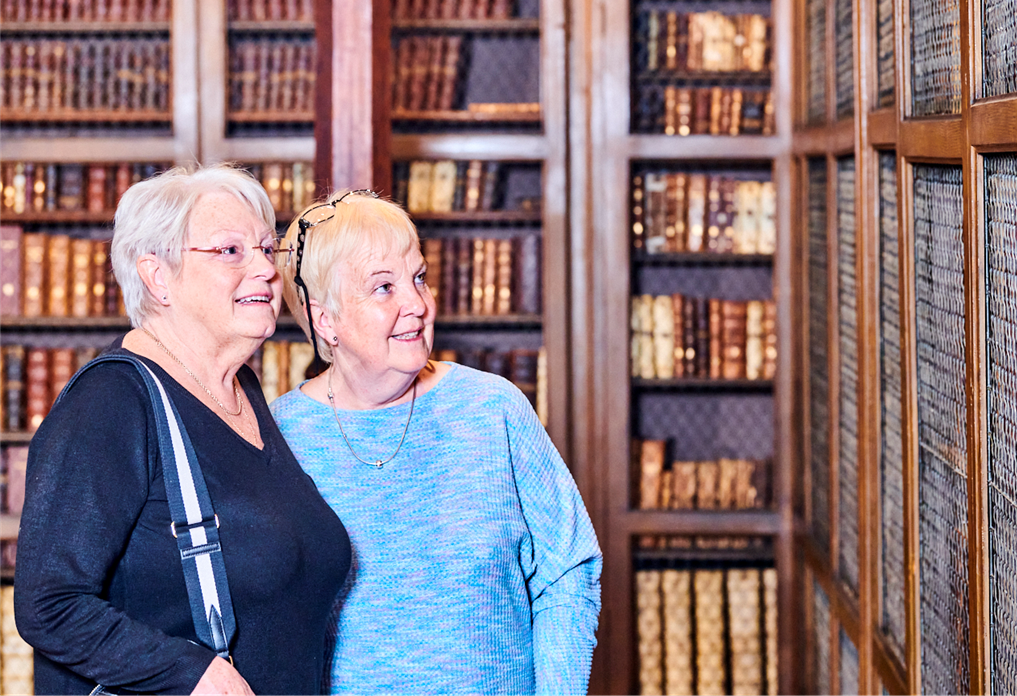Bishop Cosin and his Library
Innovative, revolutionary, and ambitious are perhaps not the traits many would immediately associate with librarians; but John Cosin, Bishop of Durham, was all of these. As well as being obsessed with books and deeply traditional, he embraced the latest thinking and would make a permanent transformative mark on Durham. In some ways he was a walking contradiction.
Born in 1594 in Norwich and educated in Cambridge, he became a priest and ended up as a librarian at both Litchfield and Durham Cathedrals, before becoming Master of Peterhouse Cambridge at the age of 41.
In a time dominated by the rise and rise of Puritanism he was very High Church. Some might even have gone as far as saying he was a Catholic, given his love of ceremony, ritual and the music which accompanied it. He was no Papist, but he was a devout Royalist.
Over the years, his publication of a Collection of Private Devotions for King Charles I, his association with William Laud (Archbishop of Canterbury and instigator of Charles I’s Church Reforms), and finally his gift of the Peterhouse silver to the King to help fund the Civil War - amongst other colourful events - meant that he had to flee to the Continent sometime in 1644.
His exile in France as chaplain to members of the English royal family brought him into contact with the some of the most important European intellectuals and thinkers of the day, transforming his outlook. He also spent the years of his exile buying books.
His unstinting loyalty to the Crown finally bore fruit with the Restoration of the Monarchy in 1660 when Cosin was made Bishop of Durham. In the short 12 years before his death, he embarked on an ambitious programme of restoration and renewal to the buildings trashed by the occupying Parliamentary forces during the Commonwealth period. Much of his work survives to this day including, of course, his public library on Palace Green.
‘Public’ libraries in 17th century England were very rare and even these were only open to carefully selected readers. While initially Cosin only opened his new library to members of the clergy, lawyers and other learned gentlemen in Durham and Northumberland, this was a much wider range of people than would normally have been given access to university or cathedral libraries at the time.
Its interior was created in the newest continental style to encourage discourse and the exchange of ideas, and he spent a staggering £2,000 on new books (over £350,000 in today’s money). These were supplemented with many of his own books from Peterhouse and from his exile in France. The motto over the door reads ‘not the least part of learning is the knowledge of good books’.
The first library catalogue shows that Cosin filled his library with much theology (Bibles and commentaries on individual books of the Bible), history and law as well as ancient Greek and Roman literature and philosophy. But he also included other works, such as William Shakespeare’s First Folio.
Bishop John Cosin died only three years after the completion of his library, but he created a legacy of learning through books which survives within Durham University today. After his death in 1672, the library would continue to be added to both by his successors and other donors. These included Cosin’s agent George Davenport, who added some of the medieval manuscripts, Bishop Edward Maltby (1770-1859) and Thomas Masterman Winterbottom (1766-1859), a physician from South Shields.
Cosin’s 3,000 books would go on to form the foundation of a university library, a library which now contains almost a million books and is still open to everyone (including: clergy, lawyers, and other learned gentlemen).
In 2005, Cosin’s Library would be given Designated status by the Arts Council for its national and international importance.


/prod01/channel_4/things-to-do/media/things-to-do/historic-libraries-at-palace-green/Buildings_01-3-1920X290.jpg)
